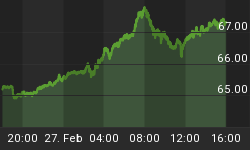An April 25 article reports that a recent IMF overview of Spain's financial system has said the Spanish banking system "remains vulnerable" and needs:
- a capital infusion; and,
- a strategy to 'quickly clear away' a collapsing property bubble legacy, where bad debts have now reached U.S.$185 billion.
The article goes on to report:
- "there is no obvious way out of the dilemma"; and,
- importantly, the "the IMF wants the rules changed so it can lend directly to banks - and underwrite a rescue of the Spanish financial system without increasing Spain's government debt.
Put Spanish bank bad debt of U.S.$185 billion in perspective by making the following simplistic comparisons between Spain and Canada:
- Spain's population is 46 million, 35% larger than Canada's population of 34 million;
- Spain's 2012 Federal Deficit is targeted at 5.3% of GDP. Spain's 2011 GDP as estimated by the IMF was U.S.$1.5 trillion (from Wikipedia). That suggests Spain's 2012 Federal Deficit is targeted to be in the order of U.S.$80 billion;
- it is now estimated by some that Canada's 2012 Federal Deficit will come in around Cdn$20 billion;
- assuming U.S.$/Cdn$ parity, that means Spain's:
- 2012 Federal Deficit is about 4X that of Canada's, and
- Spain's reported property related bad debts held by Spanish bank's is now about 9X the size of what may prove to be Canada's current year fiscal deficit;
- concurrently, Spain's current unemployment rate is reported at over 23% with its youth unemployment rate reported at over 51%; and,
- Canada's comparative current unemployment rates are reported to be 7.4% and 14.7% respectively.
In Canada many are worried about the extent of the Federal Deficit, the unemployment rates, and what is broadly thought to be a residential housing price bubble.
The foregoing comparison is not intended to demonstrate 'what good economic shape' Canada is in, because while Canada arguably is in better economic and financial shape at a Federal level that many other developed countries, it has worrisome debt levels at a Provincial (read State) level in a number of its Provinces. The comparison simply is made to show just how much worse Spain is by way of contrast of only three statistics.
To 'make up a Yogi Berra-ism, 'when something is inevitable it is inevitable'. All the King's horse's and all the King's men are hardly likely to be able to put 'Spain back together again' - as least as it was at the turn of this century.
That the IMF wants to take a more direct role in assisting the Spanish banks is interesting on one hand, and adds to worry on the other. One wonders whether this is a clear signal on the part of the IMF that it is distrustful of providing funds to a (in this case, Spain's) Government in circumstances that those funds may not find their way to the place the IMF intends? If there is anything to that - and the rules were changed such that the IMF was allowed to lend directly to targeted public and private enterprise - it would change the IMF's role and world economic influence considerably.
This is an article that you ought to read and think about.
Spanish banks 'vulnerable' and may neet public help, says IMF
Source: The Washington Post, Howard Schneider, April 25, 2012
Reading time: 4 minutes
Also see the following related article which reports on potential changes that may be being considered to the Euro bailout fund that would see that fund being able to lend money directly to financial institutions. Germany is reported as being opposed to this.
Euro Group Considers Direct Aid for (Spanish) Banks
Overview: Reports on potential change to Euro bailout fund
Source: Spiegel Online, April 26, 2012
Reading time: 3 minutes















